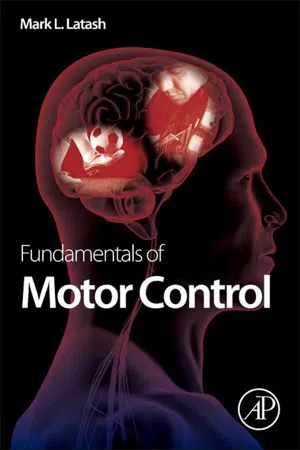
- 364 pages
- English
- ePUB (mobile friendly)
- Available on iOS & Android
Fundamentals of Motor Control
About this book
Motor control is a relatively young field of research exploring how the nervous system produces purposeful, coordinated movements in its interaction with the body and the environment through conscious and unsconscious thought. Many books purporting to cover motor control have veered off course to examine biomechanics and physiology rather than actual control, leaving a gap in the literature. This book covers all the major perspectives in motor control, with a balanced approach. There are chapters explicitly dedicated to control theory, to dynamical systems, to biomechanics, to different behaviors, and to motor learning, including case studies.- Reviews current research in motor control- Contains balanced perspectives among neuroscience, psychology, physics and biomechanics- Highlights controversies in the field- Discusses neurophysiology, control theory, biomechanics, and dynamical systems under one cover- Links principles of motor control to everyday behaviors- Includes case studies delving into topics in more detail
Frequently asked questions
- Essential is ideal for learners and professionals who enjoy exploring a wide range of subjects. Access the Essential Library with 800,000+ trusted titles and best-sellers across business, personal growth, and the humanities. Includes unlimited reading time and Standard Read Aloud voice.
- Complete: Perfect for advanced learners and researchers needing full, unrestricted access. Unlock 1.4M+ books across hundreds of subjects, including academic and specialized titles. The Complete Plan also includes advanced features like Premium Read Aloud and Research Assistant.
Please note we cannot support devices running on iOS 13 and Android 7 or earlier. Learn more about using the app.
Information
Table of contents
- Cover image
- Title page
- Table of Contents
- Copyright
- Preface
- 1. A philosophical introduction
- 2. Elements of history
- 3. Features of the system for movement production
- 4. Instructive examples
- 5. Control with forces and torques
- 6. Control with muscle activations
- 7. Control theory approaches
- 8. Physical approaches
- 9. Coordination
- 10. Neurophysiological structures
- 11. Exemplary behaviors
- 12. Effects of practice and adaptation
- 13. Methods in motor control studies
- Glossary
- Index